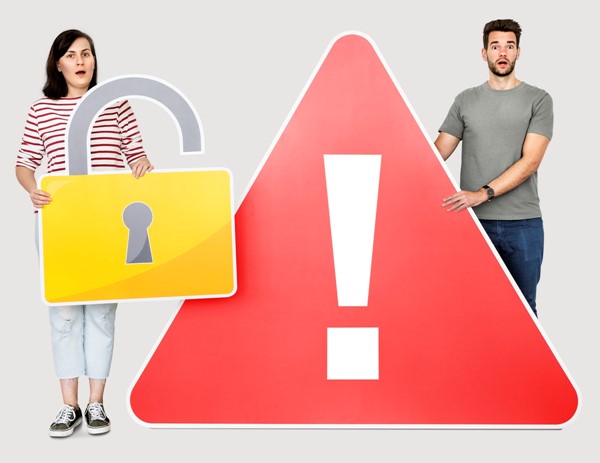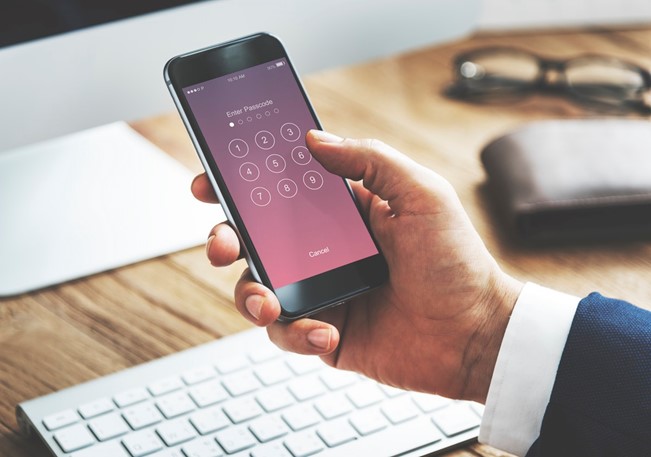Why Privacy Matters in a Digital World (and Tips to Protect Your Personal Data)
In this digital age, there are two important facts you should keep in mind. First, the online world is not a safe place. Second, internet privacy always matters.
As of January 2017, statistics show that 50% of the global population has access to the Internet. While this may sound like amazing news, being connected to the online world, however, has its drawbacks – and one of these is the access and abuse of your personal data.
Did you know that hacking attacks happen every 39 seconds? Cybercriminals, organisations and even the government can get your information easily and use it for their own purposes. In fact, a survey from TechRepublic in 2016 found that 95% of breached records came from the following industries: Government, retail, and technology industries. In 2018, cybercrime generated at least $1.5 billion. No wonder the cybersecurity market is expected to be worth $300 billion in 2024.
If you don’t take your online privacy seriously, a lot of unexpected things can happen. Fortunately, there are ways to protect yourself and your family from data security threats.
The Importance of Online Privacy
Privacy is a person’s right to keep their personal matters and information a secret from the public eye. Data privacy refers to how data (a piece of information) is gathered, shared and used. Internet privacy (also known as Personally Identifiable Information) falls to the category of data privacy.
Issues related to data privacy can occur in response to information from different sources such as health records, financial transactions, privacy breaches and using persistent website cookies. In addition, as more and more people are using the Internet to search for information, purchase things online or send emails, data privacy has become increasingly important, but at the same time, at risk of cyberattacks.

Cybercriminals use advanced techniques to get your personal and financial information. They violate consumer privacy because they can earn from it. Once they can access your account, they can easily steal your most important data such as your contact details, email addresses, credit card numbers, and working IP address. Government agencies and private companies, who also collect your data, are also at risk of major data breaches, which can cause them extensive and damaging after-effects.
That’s why internet privacy is critical. As a user, it is your responsibility to protect your personal data by staying vigilant with any information you share online. You have the right to secure your privacy and to file a legal complaint whenever your information is being used without your permission.
Related: Internet Safety for Seniors
Surprising Online Privacy Facts You Need to Know
The following online privacy facts further explain the importance of data privacy and how to stay safe while you’re using the Internet.
Ads follow you around the web – have you noticed that when you jump from one website to another, the same ad shows up based on your recent web searches or visits? This is called "behavioural retargeting”, which is used by advertisers for around 8 years. They do this by dropping Cookies on your browser, and other techniques. This helps them track your activities online including your browsing habits. To avoid this, be sure to disable or delete cookies as often as needed.
Always online? You can be at greater risk for cyberattacks – in 2017, 17 million Americans have been affected by identity theft (Javelin Strategy). Cybercriminals are getting smarter. They use various strategies to trick users into revealing their personal information or infect their devices with spyware and malware. By simply downloading files or clicking and sharing links with an unknown source, you can easily lose your personal data or bank account details.

Reusing passwords can make your account hackable – are you guilty of using the same password for all your accounts and devices? Though this helps you to remember your password easily, it can also compromise your data privacy. Once a cybercriminal can get into one of your accounts, they could also access your other accounts or devices that use the same password. Securing your passwords in the first place using a password manager can help prevent this threat from happening.
Skipping reading the Terms and Conditions means access to all kinds of data – A website’s Privacy Policy is the gist of information that tells the way the website gathers, uses, and discloses your data. Be sure to take the time to read the Policies and don’t click the Agree button right away until you fully understand what’s written on the document.
Your Internet records are retained – Your Internet Service Provider (ISP) or Telecom companies can store your Internet connection records for a longer period. They don’t only monitor your activities online but also filter your email and slows down other websites. In addition, they also know your browsing history and have a record of all your contact information such as emails, contacts, schedules including the places you’ve been to and the photos you uploaded.
The Facebook-Cambridge Analytica Data Scandal
In early 2018, the Internet community was shaken by what was deemed as a major political scandal in history involving two giant companies: Facebook and Cambridge Analytica.
Facebook, as we all know, is one of the largest and most influential social media company services in the world today, with 500 million active members. Cambridge Analytica, on the other hand, is a data analytics and consulting firm based in the UK with offices in New York and Washington DC.
The scandal was revealed in March 2018. Cambridge Analytica was accused of illegally collecting and using data from over 50 million Facebook users in America and at least a million in Britain. This data was used to “change audience behaviour” and influence a number of political campaigns like the US presidential elections and Brexit. As stated by the Cambridge Analytica whistle-blower Christopher Wylie, "We exploited Facebook to harvest millions of people's profiles".
How Facebook Data was used by Cambridge Analytica?
To better understand this complex situation, here’s a summary of what really happened between Facebook and Cambridge Analytica:
- In 2014, Facebook launched a personality quiz app called "thisisyourdigitallife", which was created by University of Cambridge Psychology Professor Aleksandr Kogan.
- The app involves filling out the questionnaire which allows the software to collect the user’s personal information, including their Facebook friends’ details. Kogan passed the gathered data to Cambridge Analytica.
- The data harvesting of users who took the quiz, including their connections, resulted in the data breach of the overall 50 million Facebook users’ personal information. This activity is illegal in many countries and violates Facebook’s data policy.
- Cambridge Analytica used the collected data points from Facebook to create a profile-based model and run personalised political campaigns suitable for different users on other social media platforms, aside from Facebook. This system allegedly influences the target voters’ decision making and election choices.
Following the data breach revelations, Facebook CEO Mark Zuckerberg issued his public apology:” We have a responsibility to protect your information. If we can’t, we don’t deserve it… This was a breach of trust, and I’m sorry we didn’t do more at the time. We’re now taking steps to make sure this doesn’t happen again.” As for Cambridge Analytica, CEO Alexander Nix was suspended from his position and the company stopped its operation on the 1st of May 2018.
Related: Internet Safety for Seniors
Easy Ways to Help Protect Your Personal Data
Here are some simple and quick tips to help you stay smart online:
- Don’t automatically provide your personal data. Think carefully before you click. Determine if the source can really be trusted. If you are asked online in an exchange of downloadable material, consider using an old or fake account to protect your personal information.
- Use and create different accounts depending on the platform you’re using. For instance, have a different email address for your social media, and another separate email for your other online accounts.
- Use strong and unique passwords for all of your important accounts. Avoid saving passwords on your devices. Be mindful of what you and your family share on social media.
- Safely delete all important data from the gadgets and devices that you are no longer using such as computers, smartphones, and tablets.
- Before throwing them away, shred papers and documents that contain personal and sensitive information.
- Update your computer’s operating system and browser. Make sure that you’re using a licensed and latest version of security and antivirus software.
- Enable encryption in your messaging apps. Store your most important data on a backup external disk and not on a device you often used.

The fantastic advances in the field of electronic communication constitute a greater danger to the privacy of the individual. — Earl Warren
Data privacy is a serious matter and must always be taken seriously. By keeping these reminders in mind and by being cautious of sharing your personal information online, you can prevent privacy risks and improve your private browsing experience.
They say online privacy is dead. At Life Intelligence Group, we say it’s fully alive. Securing and protecting the privacy of our online community is one of our top priorities. This is why we use technology to protect your privacy only. You can get your own personal assistant to do your online transactions while staying completely private. To learn more about how our tools (TaskSpur & Ari) can keep your personal information and Internet activities private, please visit our website: https://www.taskspur.com/.
A goal management app that takes your privacy seriously
At Life Intelligence Group, we practice what we preach. With user data security at the heart of our development principle, we are proud to introduce TaskSpur, a goal management platform designed for go-getters like you.
TaskSpur is an agile tool, goal management app, and task manager designed to help you build a habit of success every day.
Do you want to build your dream house? Plan your destination wedding? Make sure you never miss a habit?
Plan and plug it in TaskSpur, and break it down into easily doable tasks. Then simply add a start date for each task!
Leave it to Ari, your personal intelligent assistant, to remind you when you need to get them done.
Ari will send you a personalized To-Do list every day based on the plans you made.
With pre-designed goals for Personal, Career, Health, & Finance, TaskSpur makes you keep your life balance in check so you can worry less as you consistently hit your goals every day.
Try it now and see how easy goal & task management can be.
Download TaskSpur on Android | Download TaskSpur on your iPhone
Sign up or Login on your browser
Image Source: Rawpixel
References:
- https://www.statista.com/topics/2476/online-privacy/
- https://secureswissdata.com/10-internet-privacy-facts/
- https://choosetoencrypt.com/privacy/shocking-internet-privacy-statistics/
- https://www.ontrack.com/blog/2016/11/22/protect-digital-privacy-modern-world/
- https://www.lifelock.com/learn-identity-theft-resources-what-is-data-privacy-and-why-is-it-important.html